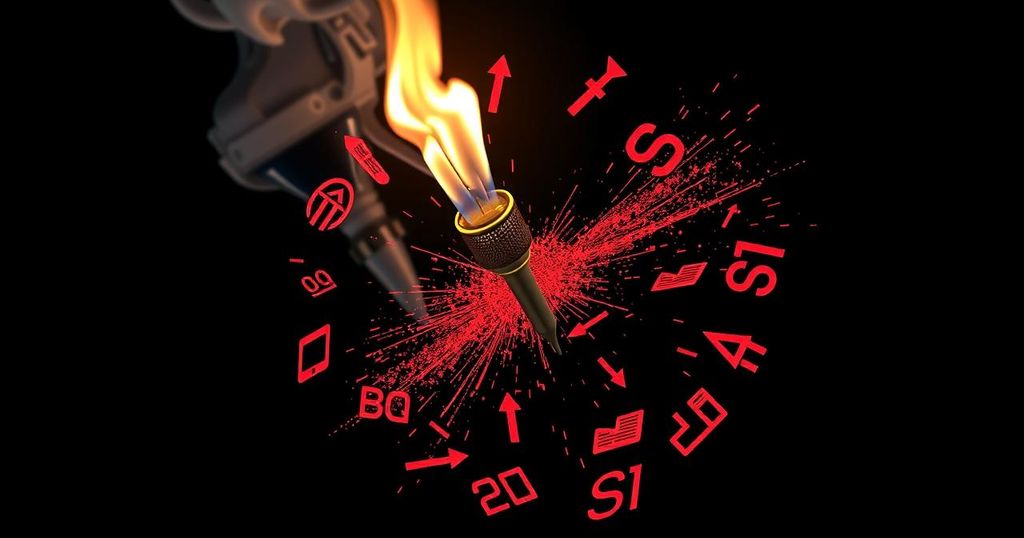Surge of Election Denial Conspiracy Theories Erupts from the Left on X

Following Trump’s announcement as the winner of the 2024 election, conspiracy theories about voting integrity proliferated on X. While some Democrats speculated about a significant number of “missing votes,” experts emphasized that official counts were still pending. Notably, these unfounded theories reflect broader challenges in public trust related to electoral processes, relating similarly to past election denials.
Following the announcement of Donald Trump’s victory in the early hours of Wednesday morning, a surge of conspiracy theories concerning the integrity of the 2024 U.S. presidential election rapidly spread across Elon Musk’s X platform. Posts doubting the results and advocating for a recount skyrocketed to nearly 94,000 per hour, with notable engagement, including many posts surpassing 1 million views. For instance, author John Pavlovitz questioned record voter turnout, raising suspicions about discrepancies in the vote count. Interestingly, while the term “Trump cheated” trended, many of the conspiracy theories centered on the belief that approximately 20 million votes were missing, despite official counts indicating that many ballots remained uncounted. As experts pointed out, this dramatic narrative lacks support as the total votes from ongoing counting have not yet been fully tabulated. Nina Jankowicz, a disinformation expert, highlighted the universal danger of election denial, stating that such unfounded claims could erode public trust in democratic processes. The asynchronous growth of these posts was notable, as they spiked during late-night hours, suggesting potential inauthentic behavior or automated sharing, contrasting sharply with the silenced post-reactions from pro-Trump proponents, who were previously vociferous following the 2020 election. In much of the discourse, individuals suggested that the visible drop in vote counts from the previous election resulted in unfounded paranoia regarding vote integrity. In stark contrast to the previous election cycle, where Trump himself propagated falsehoods about the results, Kamala Harris, upon acknowledging the results, called for acceptance and a peaceful transition of power. Nonetheless, prominent figures within conspiracy movements, such as Dinesh D’Souza, leveraged the missing votes narrative to bolster their earlier disproven claims. Trying to link the current election outcomes to past falsehoods illustrates a concerning trend in politicizing election results contrary to factual evidence, while anti-Trump advocates also exploited the situation for conspiratorial speculation.
Election denial, particularly in the U.S. context, has transcended party lines, with both left-leaning and right-leaning factions engaging in unfounded conspiracy theories subsequent to elections. Following Trump’s initial 2020 electoral defeat, many supporters espoused baseless claims of fraud, leading to widespread disenchantment with electoral integrity. This backdrop drew attention to a similar resurgence of skepticism after the 2024 election, where young Democratic voters expressed doubts about vote tallies and completion rates. The phenomenon known as “BlueAnon” surfaced, highlighting the divisive environment while raising concerns over democracy’s robustness as conspiracy theories propagate unchecked.
The disconcerting rise in election denial conspiracy theories following the announcement of election results illustrates a complex dynamic where both sides of the political spectrum engage in unfounded claims. This behavior undermines trust in democratic institutions and poses long-term risks to public confidence in electoral processes. Experts echo the sentiment that regardless of the source, such misinformation must be addressed effectively to maintain democratic integrity and public engagement.
Original Source: www.wired.com








